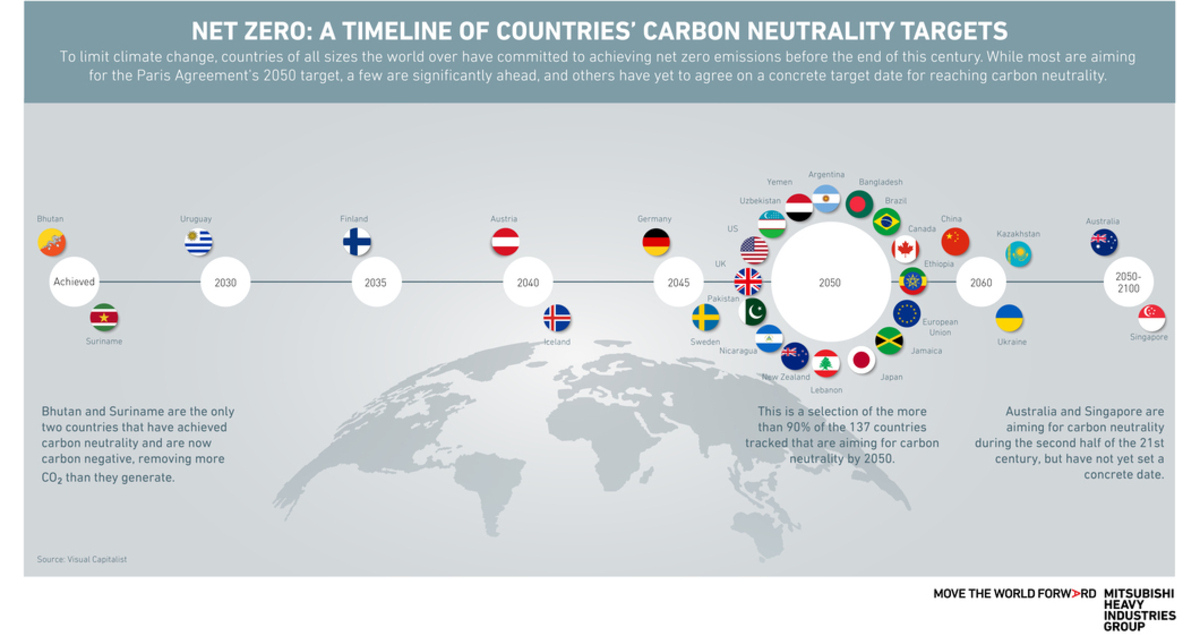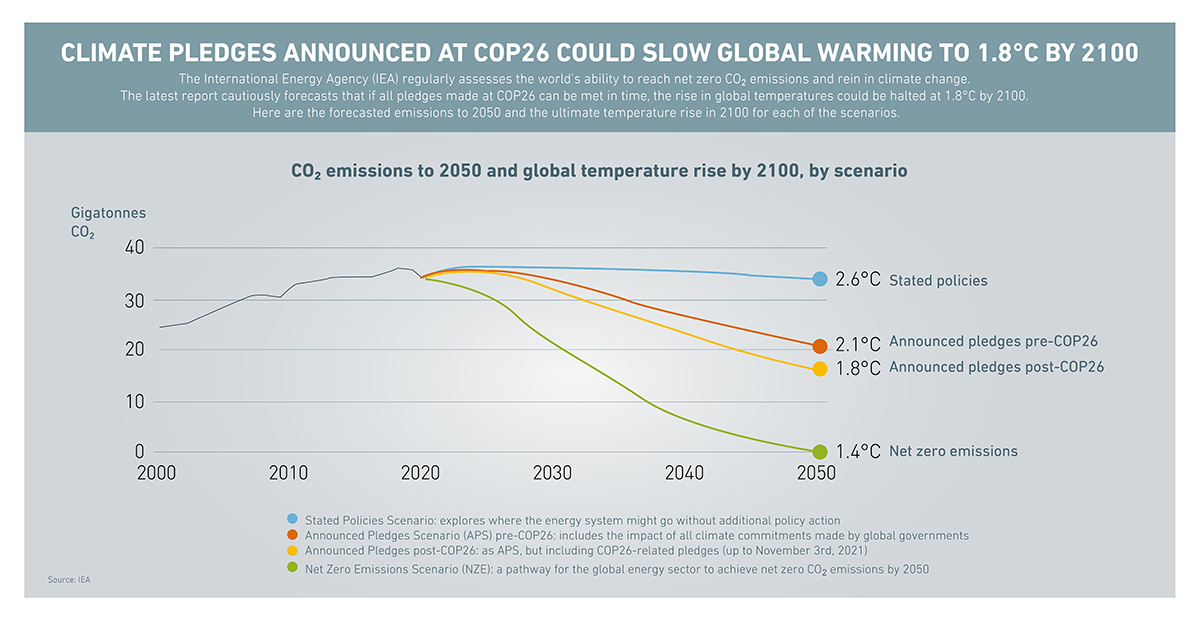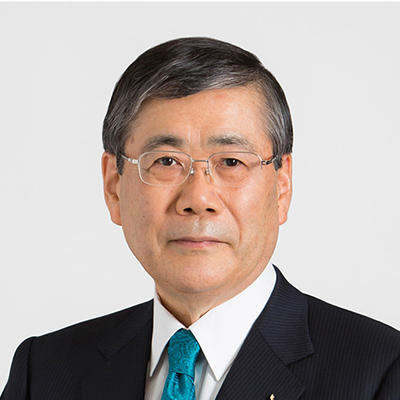MHI’s chairman Miyanaga talks on human capitalism: building trust on the road to net zero

This article was previously published in our newsletter, if you're not already a subscriber, sign up here.
Most nations today recognize both the importance and the urgency of the battle against global warming; but there are still significant differences on how best to achieve net zero greenhouse gas emissions and how to share the cost of doing so. In the polarized world we unfortunately live in, this creates a lot of room for conflict – conflict between cultures, geographies and even generations. That, in turn, leads to an erosion of trust which not only slows our progress on fighting climate change but spills over into other social and political issues.
The corporate sector has a vital role to play in tackling and, ultimately, helping to solve this issue. Companies are sometimes more agile than national governments and are often close to local communities with a deep understanding of their needs. At the same time, they are often able to marshal greater resources than those communities can do independently and are experienced at achieving goals and targets.
Take global warming itself. While many countries have set laudable goals, with more than 130 nations promising to reach net zero emissions by 2050 or even earlier, few have set out detailed roadmaps on how to get there. If you look at the four most realistic pathways for carbon dioxide (CO2) emissions as set out by the International Energy Agency (IEA), then even with all the new commitments made at last November’s COP26 summit in Glasgow, global temperatures will rise by at least 1.8°C above pre-industrial levels by 2050. If we do not implement those promises, then temperatures will rise by 2-3 °C, with potentially disastrous consequences for our planet.

Corporates take the initiative
By contrast, the private sector is taking smaller but eminently practical steps on the road to net zero, focusing on proven technologies and mobilizing the capital needed to scale these up. Three areas that are a priority for the IEA and also attracted a lot of attention at last November’s COP26 summit are: • decarbonizing existing infrastructure, such as helping utilities switch from coal and oil to cleaner natural gas and eventually zero-carbon fuels like ammonia and hydrogen;
• scaling up carbon capture, utilization and storage technologies (CCUS) and building a value chain for CO2 from capture to transport, storage and utilization in industry;
• and building a similar ecosystem for hydrogen that also encompasses production, transport, storage and multiple applications in energy, industry and long-distance transportation.
Every day, we invest in research and development in these areas. We work closely with our customers to anticipate their needs; and we encourage our suppliers to invest alongside us. It helps that many of the technologies we focus on are well-established and make use of similar components to those in thermal power equipment.
We also collaborate with companies we would once have regarded only as competitors, as well as with start-ups, industry organizations and academic institutions. We understand the need for partnership to achieve results and the need for openness to create trust. While we need to keep some intellectual property secret in order to achieve a commercial return as a company, we are sharing more and more of our technology. A good example is the recent public testing of our new proprietary CO₂ solvent at a third-party facility in Norway.

Capitalism with a human face
This emphasis on openness, collaboration and trust is not just about solving concrete engineering challenges more quickly but also about setting an example. I believe that companies are deeply rooted in society. They must work for the overall happiness and progress of society – and do so consciously and explicitly rather than just blindly pursuing profit. Not only do corporations need to listen to the views of their diverse stakeholders; they also need to understand that they can – and do – influence the behavior of customers, suppliers, employees, investors and the community at large – for better or worse. It is a two-way street.
This is a heavy responsibility and the true meaning of what is often labelled ‘ESG’ or ‘Sustainability’. I prefer to call it ‘human capitalism’ and it is not a new idea, nor an idea born only in Japan. But it has been out of favor until recently, during a period when the Anglo-Saxon variety of capitalism dominated developed economies; and I do believe that Japanese philosophy and attitudes are a very good foundation for human capitalism. In Japan we have traditionally prized stability and harmony even if the price has been less rapid growth.
In the past, this was only possible in relatively homogenous societies that maintained a certain degree of isolation: think of the stability of Edo period Japan compared to, say, the chaotic fall of Rome. The wonderful thing in today’s interconnected world, however, is that we can strive for human capitalism on a global scale. And we can do so across the generations. In particular, we should pay more attention to the needs of the young, whose natural anxiety about the state of the world has led many to become disaffected or simply disconnected. We should not only think of ourselves. After all, humans are mortal but society is immortal.
One thing we must all do, right now – and by ‘we’ I mean the very people who come to Davos – is to communicate better. We need to inform all stakeholders about what we have already done, about our plans for the future and how these will affect them. We must not shy away from difficult questions and should accept sensible criticism and adapt. Increased openness will restore trust, allowing faster progress toward our common goals. It is a pretty simple virtuous circle. All participants including our company should intend to play their part as responsible citizens to create a better world.





